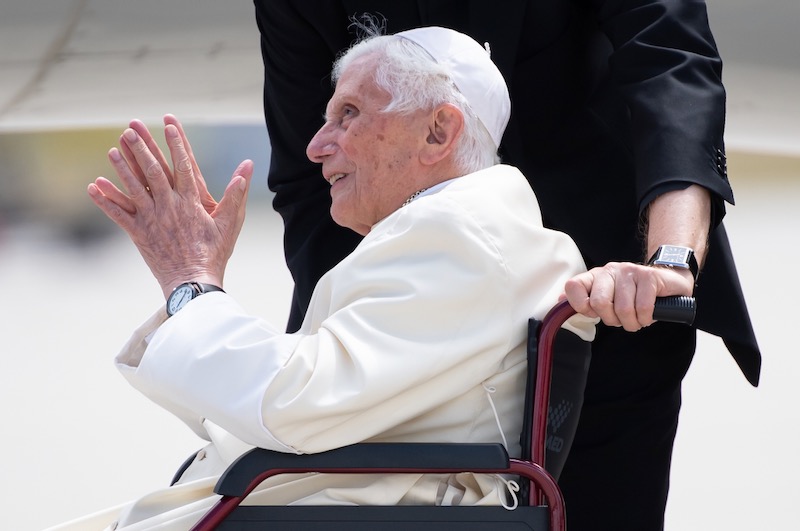A letter has emerged, written by Pope Emeritus Benedict XVI when, as Joseph Ratzinger, he was Prefect of the Congregation for the Doctrine of the Faith in 1982, that throws new and possibly decisive light on the increasingly acrimonious dispute between the leadership of the highly influential Schönstatt Movement and a theologian-researcher.
Investigating the Pius XII archives, Alexandra von Teuffenbach, a former professor of theology and Church history at the Pontifical Lateran University, found substantial material on the 1951-3 Apostolic Visitation of Schönstatt ordered by the then Holy Office (now the CDF) which showed that its founder, Fr Josef Kentenich (1885-1968), had been accused of abusing his power and of sexual abuse.
In an article in the German Catholic weekly Die Tagespost in early July, Teuffenbach described the documentation she had found in detail. The Schönstatt Movement immediately rejected the abuse allegations.
Kentenich was exiled for 14 years, returning to Europe from the United States in 1965. The Movement claimed that Kentenich had been rehabilitated while a beatification process for him began in 1975.
In an interview for the official website of the German bishops’ conference, katholisch.de, on 8 July, Teuffenbach pointed out that nothing had ever been published on Kentenich’s alleged rehabilitation as far as she knew.
On 3 August the journalist Sandro Magister published on the Italian website L’Espresso sections of a letter written by Ratzinger on behalf of the CDF on 2 April 1982 to Fr Ludwig Münz, the superior general of the Pallottines, the religious congregation to which Kentenich originally belonged.
The letter states (our translation):
- The Congregation for the Doctrine of the Faith is not of the opinion that the complaints made by the Apostolic Visitator at the time about the teaching and the activities of Fr Kentenich were a regrettable mistake and were based on false information.
- At the Holy Office meeting of 29 October 1965, none of the decisions of the Holy Office concerning the teaching, activities or the person of Fr Kentenich were annulled. All that happened was that the Holy Office did not insist that Fr Kentenich, who had come to Rome from the USA without the permission of the Holy Office after misinterpreting a telegram, return to the United States.
- When the Congregation for Religious dispensed Fr Kentenich from the Pallottine Order’s vows and gave him permission to become incardinated in the diocese of Münster on condition that he did not enter the Secular Institute of Schönstatt priests, and forbade him to take over the leadership of the Schönstatt Work, the Congregation for the Doctrine of the Faith gave its permission.
Writing to Magister, and quoted in the 3 August article, Teuffenbach said: “Perhaps everything can be summed up with that answer given by Fr Angelo Strada, postulator of Kentenich’s cause until 2016.” Strada had named Sts Peter and Paul and St Francis to show that holiness does not mean “being without mistakes”. Teuffenbach pointed out that “by the grace of God these saints took note of their mistakes and changed their lives. Kentenich, on the other hand, never showed any repentance, even though the Church, officially and repeatedly, asked for it.”



 Loading ...
Loading ...